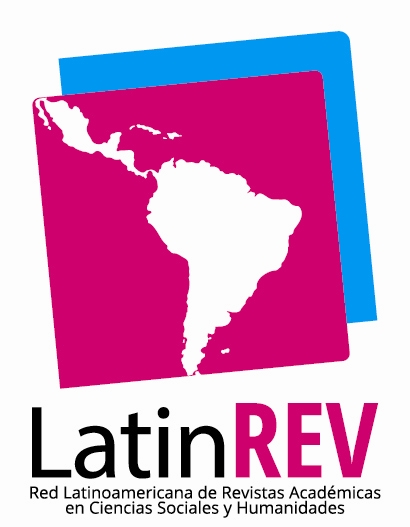A migração ambiental no regime internacional de mudança climática sob a perspectiva da AOSIS
DOI:
https://doi.org/10.15448/2178-5694.2019.1.33212Palavras-chave:
Migração ambiental, AOSIS, Adaptação, Regime internacional de mudança climáticasResumo
A migração ambiental tem ganhado destaque, nas últimas décadas, como a dimensão humana dos impactos da mudança climática e como efetiva estratégia de adaptação para comunidades em regiões vulneráveis. Este artigo analisa como a migração ambiental é apresentada no discurso da Aliança dos Pequenos Estados Insulares (AOSIS), grupo de negociação dos países mais afetados pelo aquecimento global, no regime internacional de mudança cli- mática. Através da análise de fontes primárias, constata-se que o processo migratório é utilizado como legitimador moral das propostas de mitigação da AOSIS, sem ser considerado como proposta de adaptação. Diante de aparente incoerência entre o uso da migração no discurso e a ausência de medidas efetivas de adaptação, apresenta-se possíveis explicações sob quatro aspectos: político, cultural, técnico e estrutural.
Downloads
Referências
ADGER, William Neil et al. Cultural dimensions of climate change impacts and adaptation. Nature Climate Change, [S. l.], v. 3, p. 112-117, 2013.
https://doi.org/10.1038/nclimate1666
AOSIS. Alliance of Small Island States Leaders’ Declaration. 2012a.
Disponível em: http://aosis.org/ documents/climate-change. Acesso em: 02 de outubro de 2018.
AOSIS. Statement by Nauru on behalf of the Alliance of Small Island States. Ad Hoc Working Group on the Durban Platform for Enhanced Action Opening Plenary. 2012b.
Disponível em: http://aosis. org/documents/climate-change. Acesso em: 02 de outubro de 2018.
AOSIS. Statement by Nauru on behalf of the Alliance of Small Island States at the opening of the Ad Hoc Working Group on the Durban Platform for Enhanced Action. 2014.
Disponível em: https://unfccc.int/files/documentation/submissions_ from_parties/adp/ application/pdf/adp2.4_ao- sis_20140310.pdf . Acesso em: 02 de outubro de 2018.
AOSIS. Statement delivered by Nauru on behalf of the Alliance of Small Island States (AOSIS). Closing Plenary Ad-Hoc Working Group on the Durban Platform for Enhanced Action (ADP). 2012c.
Disponível em: http://aosis.org/documents/climate-change. Acesso em: 02 de outubro de 2018.
BERTRAM, Geoff. The MIRAB model twelve years on. The Contemporary Pacific, v. 11, n. 1, p. 105- 138, 1999.
BETZOLD, Carola. ‘Borowing’ power to influence international negotiations: AOSIS in the Climate Change Regime, 1990-1997. Politics, [S. l.], v. 30, n. 3, p. 131-148, 2010.
https://doi.org/10.1111/j. 1467-9256.2010.01377.x
BETZOLD, Carola; CASTRO, Paula; WEILER, Florian. AOSIS in the UNFCCC negotiations: from unity to fragmentation? Climate Policy, London, v. 12, n. 5, p. 591-613, 2012.
https://doi.org/10.1080/14 693062.2012.692205
BHANDARY, Rishikesh Ram. Coalition strategies in the climate negotiations: an analysis of mou- ntain-related coalitions. International Environmental Agreements, [S. l.], v. 17, p. 173-190, 2017.
https://doi.org/10.1007/s10784-015-9313-6
BIESBROEK, Robbert; SWART, Rob; VAN DER KNAAP, Wim. The mitigation-adaptation dichotomy and the role of spatial planning. Habitat International, Oxford, v. 33, n. 3, p. 230-237, 2009.
https:// doi.org/10.1016/j.habitatint.2008.10.001
BOSELLO, Francesco; CARRARO, Carlo; DE CIAN, Enrica. Climate policy and the optimal balance between mitigation, adaptation and unavoided damage. Climate Change Economics, [S. l.], v. 1, n. 2, p. 71-92, 2010.
https://doi.org/10.1142/S201000781000008X
CORENDEA, Cosmin. Hybrid legal approaches towards climate change: concepts, mechanisms and implementation. Annual Survey of International & Comparative Law, [S. l.], v. 21, n. 1, p. 29-41, 2016.
CORENDEA, Cosmin; BELLO, Valeria; BRYAR, Timothy. Promoting human security and minimizing conflict associated with forced migration in the Pacific region. Barcelona: UNU-GCM, 2015.
CORENDEA, Cosmin; MANI, Tanvi. The progression of climate change, human rights, and human mobility in the context of transformative resilience - a perspective over the Pacific. In: Zinta Zommers; Keith Alverson (org.). Resilience: the science of adaptation to climate change. Amsterdam: Elsevier, 2018. p. 305-316.
https://doi.org/10.1016/B978-0-12-811891-7.00025-6
DE ÁGUEDA CORNELOUP, Inés; MOL, Arthur. Small island developing states and international climate change negotiations: the power of moral «leadership». International Environmental Agreements, [S. l.], v. 14, p. 281-297, 2014.
https://doi.org/10.1007/s10784-013-9227-0
FALKNER, Robert. The Paris Agreement and the new logic of international climate politics. International Affairs, [S. l.], v. 92, n. 5, p. 1107-1125, 2016.
https://doi.org/10.1111/1468-2346.12708
FARBOTKO, Carol; LAZRUS, Heather. The first climate refugees? Contesting global narratives of climate change in Tuvalu. Global Environmental Change, Guildford, v. 22, p. 382-390, 2012.
https:// doi.org/10.1016/j.gloenvcha.2011.11.014
GEMENNE, François. Why the numbers don’t add up: a review of estimates and predictions of peo- ple displaced by environmental changes. Global Environmental Change, Guildford v. 21, p. S41-S49, 2011.
https://doi.org/10.1016/j.gloenvcha.2011.09.005
GLOBAL Compact for Safe, Orderly and Regular Migration. 13 de julho de 2018. [S. l. : s. n.], 2018.
Disponível em: https://refugeesmigrants.un.org/sites/default/files/180713_agreed_outcome_glo- bal_compact_for_migration.pdf. Acesso em: 29 de janeiro de 2019.
HOEGH-GULDBERG, Ove et al. Impacts of 1.5°C global warming on natural and human systems. In: Valerie Masson-Delmotte et al. (org.). Global warming of 1.5°C: An IPCC Special Report on the impacts of global warming of 1.5°C above pre-industrial levels and related global greenhouse gas emission pathways, in the context of strengthening the global response to the threat of climate change, sustainable development, and efforts to eradicate poverty. 2018. cap. 3, p. 175-311.
KAVALIKU, Langi. Culture and sustainable development in the Pacific. In: Anthony Hooper (org.). Culture and sustainable development in the Pacific. Canberra: ANU Press, 2005. p. 22-31.
KELMAN, Ilan. No change from climate change: vulnerability and small island developing states. The Geographical Journal, [S. l.], v. 180, n. 2, p. 120-129, 2014.
https://doi.org/10.1111/geoj.12019
KLEIN, Naomi. Foi o capitalismo, e não a «natureza humana», que matou nossos esforços contra as mudanças climáticas. The Intercept . New York, 10 de ago. 2018.
Disponível em: https://theintercept. com/2018/08/03/climate-change-new-york-times-magazine. Acesso em: 20 de janeiro de 2019.
KOLMANNSKOG, Vikram. Climate change, environmental displacement and international law. Journal of International Development, [S. l.], v. 24, n. 8, p. 1071-1081, 2012.
https://doi.org/10.1002/jid.2888
LARSEN, Henrik. Foreign policy and discourse analysis: France, Britain and Europe. Padstow: Routledge, 1997.
LEE, Donna; HAMPTON, Mark; JEYACHEYA, Julia. The political economy of precarious work in the tourism industry in small island developing states. Review of International Political Economy, [S. l.], v. 22, n. 1, p. 194-223, 2015.
https://doi.org/10.1080/09692290.2014.887590
MCNAMARA, Karen Elizabeth; GIBSON, Chris. ‘We do not want to leave our land’: Pacific ambas- sadors at the United Nations resist the category of ‘climate refugees’. Geoforum, [S. l.], v. 40, p. 475-483, 2009.
https://doi.org/10.1016/j.geoforum.2009.03.006
MINISTRY OF ECONOMY OF REPUBLIC OF FIJI. Planned relocation guidelines: a framework to un- dertake climate change related relocation. 2018.
Disponível em: https://cop23.com.fj/wp-content/ uploads/2018/12/CC-PRG-BOOKLET-22-1.pdf. Acesso em 29 de janeiro de 2019.
MORTREUX, Colette; BARNETT, Jon. Climate change, migration and adaptation in Funafuti, Tuvalu. Global Environmental Change, Guildford, v. 19, p. 105-112, 2009.
https://doi.org/10.1016/j.gloen- vcha.2008.09.006
MYERS, Norman. Environmental refugees: a growing phenomenon of the 21st century. Philosophical Transactions of the Royal Society of London. Series B: Biological Sciences, London, v. 357, n. 1420, p. 609-613, 2002.
https://doi.org/10.1098/rstb.2001.0953
OIM. Glossário sobre migração. Genebra: Organização Internacional para as Migrações, 2009.
Disponível em: http://publications.iom.int/system/files/pdf/iml22.pdf>. Acesso em: 28 de janeiro de 2019.
ONU. Brasil: ONU diz que é “lamentável” saída de um Estado-membro do Pacto para Migração. Onu News, [S. l.], 09 de janeiro de 2019.
Disponível em: https://news.un.org/pt/story/2019/01/1654722>. Acesso em: 29 de janeiro de 2019.
ROGELJ, Joeri et al. Paris Agreement climate proposals need a boost to keep warming well below 2°C. Nature, London, v. 534, p. 631-639, 2016.
https://doi.org/10.1038/nature18307
SKODVIN, Tora; ANDRESEN, Steinar. Leadership revisited. Global Environmental Politics, [S. l.], v. 6, n. 3, p. 13-27, 2006.
https://doi.org/10.1162/glep.2006.6.3.13
THOMAS, Adelle; BENJAMIN, Lisa. Policies and mechanisms to address climate-induced migration and displacement in Pacific and Caribbean small island developing states.
https://doi.org/10.1108/ IJCCSM-03-2017-0055
International Journal of Climate Change Strategies and Management, [S. l.], v. 10, n. 1, p. 86-104, 2018. TOL, Richard. Adaptation and mitigation: trade-offs in substance and methods. Environmental Science & Policy, Exeter, v.8, n.6, p. 572-578, 2005.
https://doi.org/10.1016/j.envsci.2005.06.011 WONG, Poh Poh.
Small island developing states. WIREs Climate Change, [S. l.], v. 2, n. 1, p. 1-6, 2011.
https://doi.org/10.1002/wcc.84
YOUNG, Oran. Political leadership and regime formation: on the development of institutions in international society. International Organization, Cambridge, Mass., v. 45, n.3, p. 281-308, 1991.






